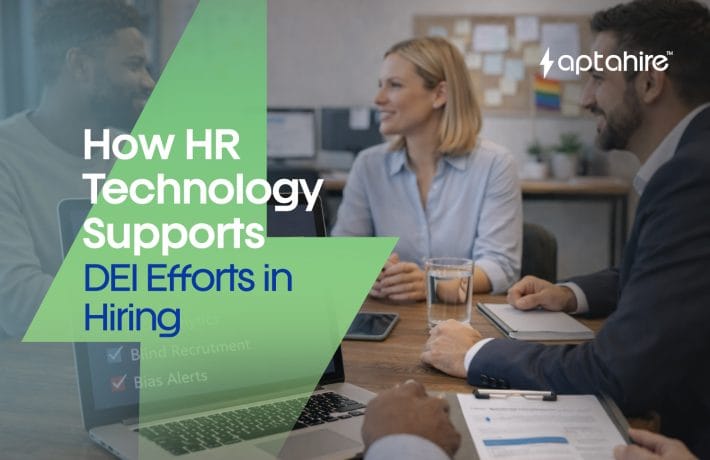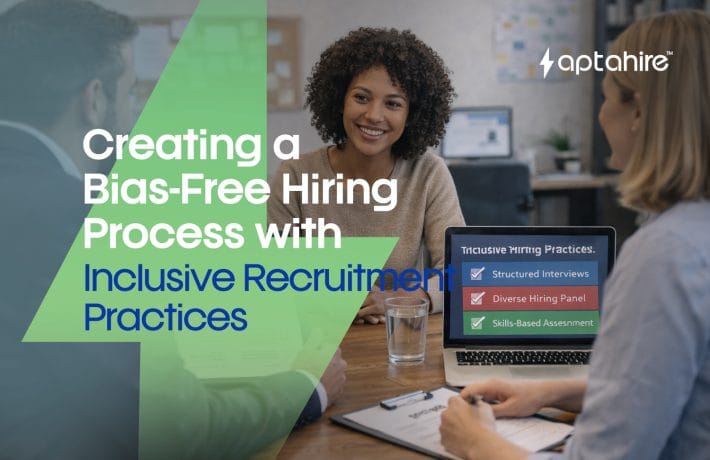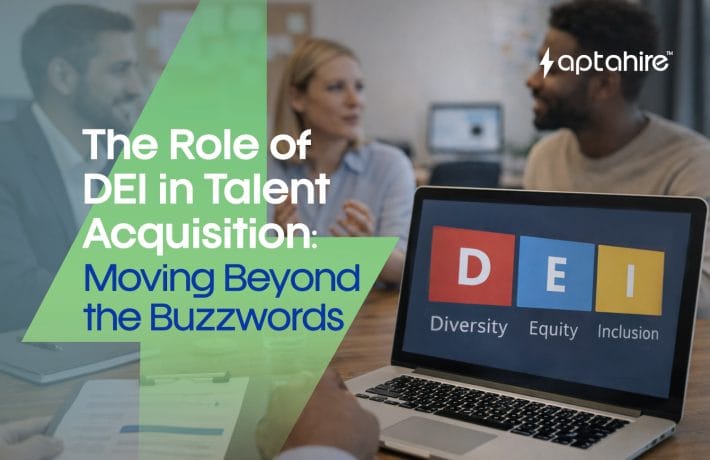AI Hiring for Technology Startups: Why It’s Crucial for Scaling

In the fast-paced world of technology startups, hiring is no longer just about finding people who can do the job, it’s about finding the right people fast, at scale, and with precision. With limited time, lean teams, and fierce competition for top talent, many startups are turning to Artificial Intelligence (AI) to power their recruitment strategies.
In this blog, we’ll explore why AI hiring is crucial for scaling tech startups, supported by real-world insights, data, and actionable ideas to future-proof your growth.
Why Hiring is a Bottleneck in Tech Startups
Tech startups thrive on innovation, agility, and speed. However, hiring often slows everything down:
- Limited HR resources: Most startups don’t have a full-fledged recruitment team.
- High competition: Skilled tech talent is in high demand and low supply.
- Burn rate anxiety: Every bad hire costs time, money, and morale.
- Scaling pressure: When funding arrives, the need to grow fast becomes critical.
According to LinkedIn’s Future of Recruiting Report, 70% of hiring managers believe that recruitment will be the top challenge for startups scaling from 10 to 100 employees.
This is where AI comes in, not to replace recruiters, but to empower them with speed, data, and scale.
What is AI Hiring?
AI hiring refers to the use of Artificial Intelligence tools and algorithms to automate, enhance, and optimize different stages of the recruitment process:
| Stage | Traditional Hiring | AI Hiring |
| Resume Screening | Manual, slow, biased | Automated, fast, unbiased |
| Candidate Outreach | Cold emails | Smart personalization |
| Interviews | Scheduling chaos | Auto-scheduling & virtual interviews |
| Skill Assessment | Manual tests | Auto-proctored, role-specific tests |
| Candidate Fit | Gut feeling | Data-backed prediction & analysis |
AI doesn’t just streamline hiring, it adds intelligence to the process.
Why AI Hiring is Crucial for Startup Growth
1. Faster Hiring = Faster Scaling
Startups can’t afford to take 60+ days to close a role. AI tools can reduce the hiring cycle by up to 60%, according to Ideal, a recruiting automation platform.
- AI resume parsers filter out 80% of unqualified applicants instantly.
- AI schedulers eliminate back-and-forths, aligning calendars in seconds.
- AI interview platforms conduct asynchronous interviews, enabling 24/7 evaluations.
Insight: Imagine hiring 10 engineers in 10 days without increasing your HR headcount. That’s the power of AI in startup hiring.
2. Cost Efficiency at Every Stage
Recruiting is expensive. According to Glassdoor, the average cost-per-hire in tech is $4,700. For startups, that figure can be crippling.
With AI:
- You cut down on recruiter hours.
- You reduce dependency on agencies.
- You avoid rehiring due to mis-hires.
Fact: Using AI-powered hiring tools can reduce recruitment costs by 30–40%, especially in early-stage startups with no HR department.
3. Smarter Skill Matching
Not every software engineer is the right fit for your startup’s tech stack. AI uses Natural Language Processing (NLP) to analyze:
- Past projects
- GitHub contributions
- LinkedIn data
- Resume content beyond just keywords
This enables better matches for niche roles, especially in AI/ML, DevOps, and data engineering.
Example: Platforms like Aptahire use AI to match candidates to jobs based on skills, tone, and behavior — not just resumes.
4. Unbiased and Inclusive Hiring
Bias creeps into hiring more often than we admit. Studies by Harvard Business Review show that identical resumes with “ethnic-sounding” names receive 30% fewer callbacks.
AI can be trained to ignore identifiers like name, gender, or university and focus purely on performance, skills, and potential — helping startups build diverse teams from Day 1.
Fact: Startups with diverse teams perform 35% better than non-diverse ones (McKinsey).
5. Better Candidate Experience
Candidates today want:
- Fast feedback
- Seamless interview experiences
- Clarity on next steps
AI platforms offer:
- Instant status updates via chatbots
- Automated interview invites
- Personalized follow-ups
This leads to higher engagement and lower dropout rates — crucial when you’re wooing top tech talent.
Stat: 78% of candidates say they’d join a company again if the interview experience was “great” — even if they weren’t selected.
6. Predictive Hiring for Culture Fit
AI tools are now able to analyze:
- Facial expressions
- Body language
- Voice modulation
- Response consistency
… during video interviews to assess personality traits, emotional intelligence, and cultural fit — beyond just technical skills.
Tool Tip: Aptahire and HireVue are examples of platforms using AI to assess integrity, empathy, leadership, and more, helping startups hire not just smart people, but the right people.
Real-World Use Case: Scaling with AI Hiring
Let’s say a Series A-funded startup needs to hire:
- 5 front-end developers
- 3 DevOps engineers
- 1 Product Manager
- 2 QA testers
Traditional hiring could take 3–4 months and require external recruiters or multiple job platforms.
With AI:
- Automated sourcing across LinkedIn, GitHub, StackOverflow
- Asynchronous pre-recorded interviews
- Auto-screening + ranking
- Instant offer triggers based on score thresholds
Result: Roles are closed within 3 weeks, saving over $30K in cost and dozens of HR hours.
AI Hiring Tools Startups Can Explore
Here are some tools tech startups should consider integrating:
| Tool | Use Case |
| Aptahire | End-to-end AI-powered hiring platform |
| HireVue | Video interview + AI analysis |
| Pymetrics | AI-based behavioral and cognitive testing |
| SeekOut | AI talent sourcing |
| Hiretual (hireEZ) | AI for outbound recruiting |
| Codility / HackerRank | Skill assessments for tech roles |
Final Thoughts: The Future of Hiring is Here
For tech startups, every hire shapes the product, the culture, and the outcome. In an environment where speed and skill can make or break your runway, AI hiring is not just an option, it’s a competitive necessity.
As AI continues to evolve, it will not replace recruiters but will augment them, turning hiring into a strategic advantage rather than a scaling bottleneck.
If your startup is looking to grow 10x, make sure your hiring process can scale 10x, and that’s what AI empowers you to do.
TL;DR
- AI hiring helps startups hire faster, better, and cheaper.
- It reduces bias, improves skill matching, and enhances candidate experience.
- Tools like Aptahire, HireVue, and Codility enable scalable, data-driven recruitment.
- In a hyper-competitive tech space, AI hiring is your secret weapon to scale with confidence.
FAQs
- How is AI useful for tech hiring?
AI revolutionizes tech hiring by automating repetitive tasks, improving candidate matching, and offering deep insights into a candidate’s technical skills and behavior. Here’s how:
- Resume screening: AI tools parse thousands of resumes to shortlist candidates based on skills, experience, and role fit.
- Skill-based assessments: AI platforms evaluate coding skills through automated coding tests and simulations.
- Bias reduction: AI can help reduce human bias by focusing on performance metrics rather than names, photos, or backgrounds.
- Video interview analysis: AI analyzes facial expressions, tone of voice, and eye movement to assess confidence, honesty, and communication skills.
- Faster time-to-hire: Automating early screening stages allows recruiters to focus only on the most promising candidates.
Result: AI in tech hiring leads to better quality hires, faster turnaround times, and more data-driven decisions.
- How is AI used in startups?
Startups leverage AI to scale operations efficiently with limited resources. Common uses include:
- Product development: AI powers product features like chatbots, recommendation engines, predictive analytics, and personalization.
- Customer support: AI tools automate customer interactions through chat, email, and voice support.
- Marketing & sales: AI helps in lead scoring, ad targeting, content generation, and campaign optimization.
- Hiring: Many early-stage startups use AI tools to source, screen, and assess candidates, especially when they don’t have a large HR team.
- Data-driven decisions: AI algorithms help startups analyze user behavior, market trends, and performance metrics in real time.
Startups that embed AI early can reduce operational costs, speed up scaling, and gain a competitive edge.
- Is AI coming for tech jobs?
AI is reshaping tech jobs, not replacing them entirely, but transforming what tech professionals need to do:
- Routine coding tasks (like debugging, documentation, or boilerplate code) may be automated with tools like GitHub Copilot or ChatGPT.
- Demand is shifting to more complex roles in AI/ML development, prompt engineering, system architecture, and AI ethics.
- AI tools act as copilots rather than replacements, helping engineers code faster, test better, and solve problems creatively.
The real threat is not AI itself, but a lack of adaptation. Tech professionals who learn to work alongside AI will thrive.
- How to use AI for recruiting?
You can use AI in every stage of the recruitment process, from sourcing to final decision-making:
- Sourcing:
- Use AI-based platforms to find passive candidates from LinkedIn, GitHub, Stack Overflow, etc.
- Screening:
- Automatically parse and rank resumes based on keywords and past hiring data.
- Assessment:
- Conduct AI-proctored skill tests or coding challenges.
- Interviewing:
- Use AI tools to analyze video interviews for tone, engagement, and honesty.
- Follow-up:
- Automate emails, status updates, and onboarding tasks using AI chatbots.
AI recruiting platforms like Aptahire, HireVue, and Pymetrics help companies streamline hiring and cut costs significantly.
5. Why do tech companies use AI?
Tech companies use AI to solve complex problems, scale fast, and gain a strategic edge:
- Innovation: AI powers products like autonomous systems, voice assistants, and smart devices.
- Efficiency: Automates routine coding, QA testing, and customer service.
- Analytics: Enables real-time data analysis, forecasting, and performance tracking.
- Personalization: AI tailors user experiences based on behavioral data.
- Recruitment & Retention: AI improves hiring accuracy and reduces churn by better predicting cultural and skill fit.
AI is no longer optional in tech, it’s the fuel behind better productivity, sharper products, and smarter business models.



